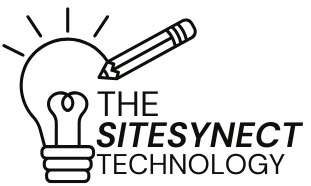Why Every Business Needs an Automated CRM System
Discover how automated CRM systems revolutionize customer management in 2023. Boost efficiency, drive sales, and enhance customer experiences with actionable insights.

Introduction
In today’s hyper-competitive market, customer relationships are the lifeblood of any business. Yet, many companies still rely on fragmented spreadsheets, missed follow-ups, and guesswork to manage client interactions. Enter the automated CRM system—a game-changing tool that streamlines operations, personalizes customer journeys, and fuels data-driven growth. Here’s why every business, from startups to enterprises, needs one in 2023.
What Is an Automated CRM System?
A Customer Relationship Management (CRM) system automates tasks like contact management, sales tracking, and marketing campaigns. Modern platforms leverage AI, machine learning, and predictive analytics to:
-
Centralize customer data (purchase history, interactions, preferences).
-
Automate repetitive tasks (email follow-ups, lead scoring, reminders).
-
Generate actionable insights to refine strategies.
Key Trend: 74% of businesses report improved customer retention after adopting CRM automation (Salesforce, 2023).
5 Reasons Your Business Needs an Automated CRM
1. Save Time & Reduce Human Error
-
Manual tasks like data entry and follow-ups drain productivity.
-
Automation handles:
-
Lead nurturing via personalized email sequences.
-
Invoice generation and payment reminders.
-
Real-time updates across teams (sales, marketing, support).
Example: A retail brand cut administrative work by 40% using HubSpot’s CRM.
-
2. Personalize Customer Experiences
-
AI analyzes behavior to segment audiences (e.g., frequent buyers vs. dormant users).
-
Use cases:
-
Tailored product recommendations.
-
Birthday discounts or loyalty rewards.
-
-
68% of customers expect personalized interactions (McKinsey, 2023).
3. Accelerate Sales Cycles
-
Automate lead scoring to prioritize high-potential prospects.
-
Track deal stages and identify bottlenecks (e.g., stalled negotiations).
-
Result: Businesses using CRMs see up to 29% faster sales growth (Nucleus Research).
4. Improve Collaboration & Decision-Making
-
Unified dashboards let teams share insights instantly.
-
AI-powered analytics forecast trends, like seasonal demand spikes.
-
Pro Tip: Integrate with tools like Slack or Microsoft Teams for seamless communication.
5. Scale Without Chaos
-
CRMs grow with your business, handling 100 or 10,000 contacts effortlessly.
-
Cloud-based access ensures remote teams stay aligned.
2023’s Must-Have CRM Features
-
AI-Driven Insights: Predict customer churn or upsell opportunities.
-
Omnichannel Support: Manage emails, social media, and live chat in one place.
-
Mobile Optimization: Update deals or check metrics on the go.
-
Third-Party Integrations: Sync with QuickBooks, Shopify, or Zapier.
Top Platforms to Explore:
-
HubSpot CRM (best for startups and inbound marketing).
-
Salesforce (enterprise-grade customization).
-
Zoho CRM (budget-friendly with robust automation).
How to Choose the Right CRM
-
Assess Needs: Do you prioritize sales automation, marketing tools, or customer support?
-
Test Usability: Opt for intuitive interfaces (avoid overcomplicated systems).
-
Check Reviews: G2 or Capterra ratings highlight user experiences.
-
Start Small: Many platforms offer free tiers (e.g., HubSpot, Zoho).
Real-World Success Story
A SaaS startup used Pipedrive’s automation to reduce lead response time from 24 hours to 15 minutes, boosting conversions by 35% in 3 months.
Conclusion
An automated CRM isn’t just a tool—it’s a strategic asset. By eliminating busywork, deepening customer relationships, and unlocking data-driven decisions, it positions businesses to thrive in 2023’s fast-paced landscape. Ready to transform your workflow? Start with a free trial today!
What's Your Reaction?
 Like
0
Like
0
 Dislike
0
Dislike
0
 Love
0
Love
0
 Funny
0
Funny
0
 Angry
0
Angry
0
 Sad
0
Sad
0
 Wow
0
Wow
0






































